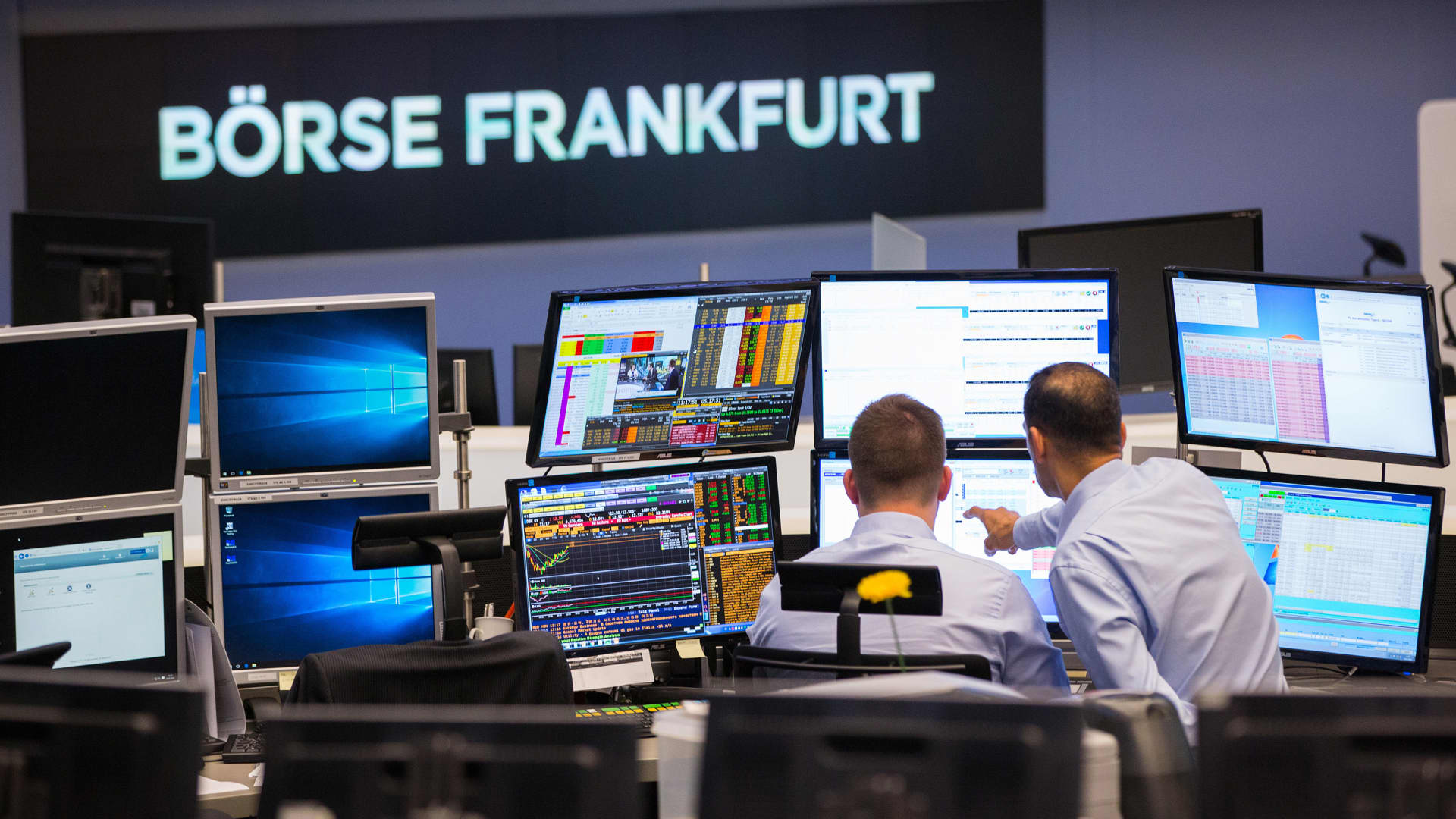Krisztian Bocsi | Bloomberg | Getty Images
LONDON — European markets closed at a fresh record high Friday, as stocks tracked higher on news of China’s stimulus blitz and investors assessed fresh inflation data.
The pan-European Stoxx 600 ended 0.52% higher to hit an all-time high of 528.33 points, having notched a record intraday high earlier in the session, according to LSEG data.
Chemicals stocks led the gains, adding 2.75%, while auto names rose 2.23%.
It comes after Chinese markets clocked their best week in almost 16 years, with the mainland’s CSI 300 rallying 15.7% this week. The last time the index saw a bigger weekly gain was the week ended Nov. 14, 2008.
China launched a large-scale stimulus package this week in a bid to boost growth and restore confidence in the world’s second-largest economy.
The People’s Bank of China said it is cutting its seven-day reverse repo rate to 1.5%, the second reduction in around three months, and slashed the reserve requirement ratio of financial institutions by 0.5 percentage point.
In Europe, France and Spain both published preliminary data Friday showing a sharp drop in harmonized inflation. The September readings fueled expectations that the headline inflation rate of the euro zone as a whole will reflect a steep drop to below the ECB’s 2% target.
Statistics agency Eurostat is scheduled to publish flash euro zone inflation data for September on Tuesday.
Stocks “European markets” on the move
Looking at individual stock moves, shares of Italian fashion group Moncler surged almost 11%, hitting the top of the European benchmark. It comes after French luxury giant LVMH struck a deal to invest in Double R, an investment vehicle controlled by Moncler, Reuters reported. Shares of LVMH added 3.7% on the news.
Meanwhile, shares of Spanish bank Banco Sabadell closed 4.8% lower. The lender is the subject of a hostile takeover bid from larger Spanish bank, BBVA.
Speaking to CNBC’s Charlotte Reed on Thursday, Banco Sabadell CEO César González-Bueno said BBVA’s proposal is “very volatile” and offers a “completely insufficient” price. Earlier in the week, BBVA CEO Onur Genç told CNBC that the takeover was “moving according to plan.”
On Wall Street, U.S. stocks were mixed as highly anticipated data showed inflation moved closer to the Federal Reserve’s target in August.
The personal consumption expenditures price index, the Fed’s preferred inflation gauge, rose 0.1% in August, putting the 12-month inflation rate at 2.2%, down from 2.5% in July.
Economists surveyed by Dow Jones had been expecting all-items PCE to rise 0.1% on the month and 2.3% from a year ago. — CNBC’s Lim Hui Jie contributed to this report.
The European market “stock” is always a focus for investors and analysts, especially because of its significant impact on the global economy.
Here are some thoughts on the state of the European stock market and the latest news and data:
1. **Global Economic Fluctuations**: The European market is often influenced by external factors such as US monetary policy, economic conditions in China, and geopolitical tensions. News related to inflation, interest rates, and economic growth in major economies can cause significant fluctuations.
2. **Response to Monetary Policy**: With many central banks in Europe, including the European Central Bank (ECB), facing challenges in controlling inflation, interest rate policy is a major concern. Raising interest rates to combat inflation can affect lending, investment, and ultimately, economic growth.
3. **Sector Performance**: Recent news and data on specific sectors, such as technology, energy, and healthcare, are important. For example, the energy sector may be supported by high oil prices, while the technology sector could come under pressure if there are concerns about global demand.
4. **Geopolitical Uncertainty**: The situation in Ukraine, Europe’s relations with Russia, and tensions in the Middle East can affect market sentiment. Investors tend to react to news related to political stability, which can cause volatility in the stock market.
5. **Economic Data and Corporate Reports**: The release of economic data such as unemployment figures, GDP growth, and consumer confidence indices can provide insight into the health of the economy. Additionally, quarterly corporate reports showing strong performance can boost stock prices, while disappointing reports can cause them to decline.
6. **Investor Movements**: With increasing uncertainty, many investors are turning to safer assets or looking for opportunities in stocks that are considered undervalued. Market sentiment can change quickly, making it important for investors to stay on top of the latest news and data.
Overall, the European stock market is a dynamic environment that is influenced by many factors, both internal and external. Investors need to keep a close eye on news, economic data, and market developments to make informed decisions.

